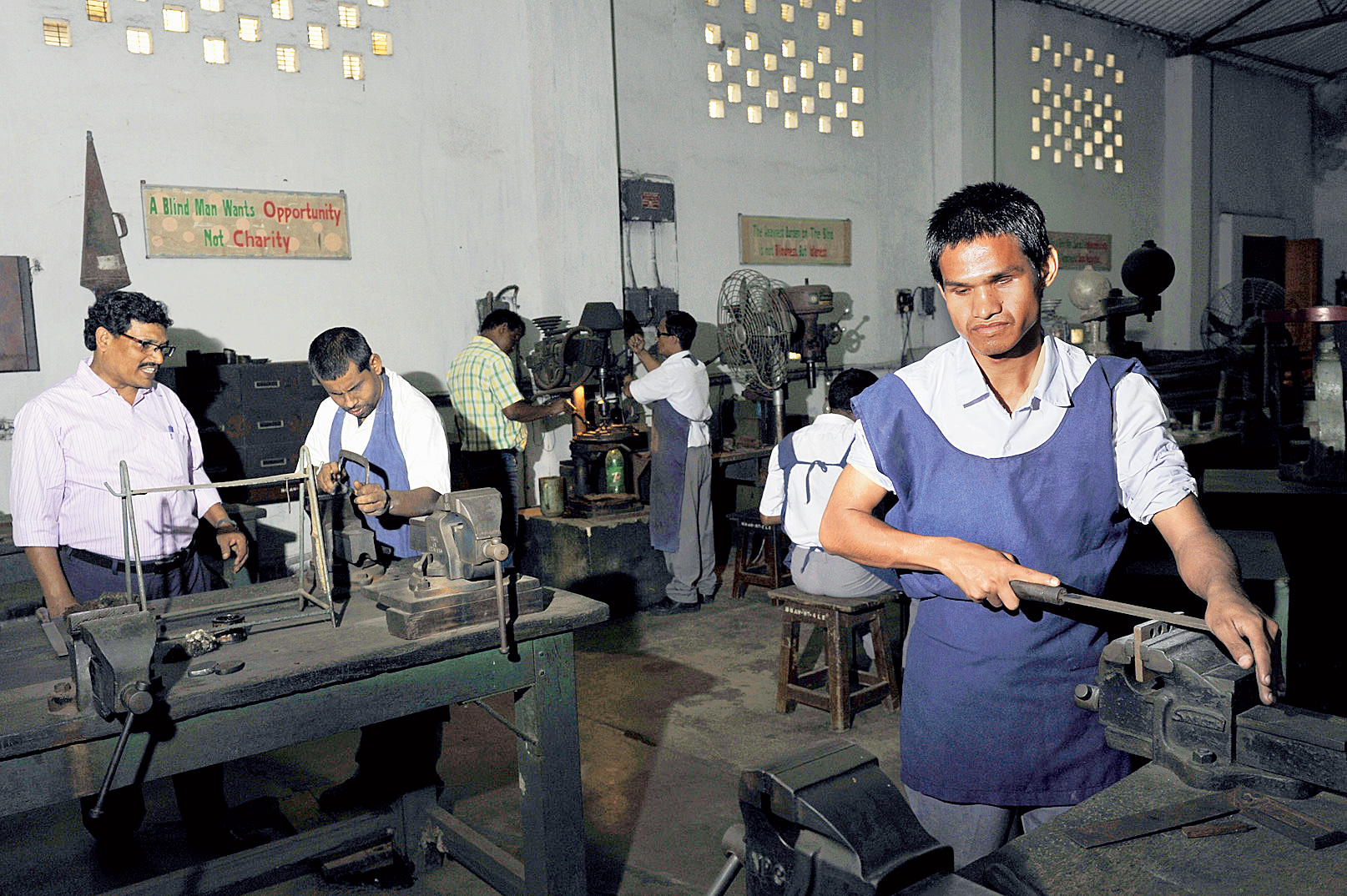Beads of sweat form and drip down his forehead but Tapas Mondal’s concentration does not flag for a second as he scrapes a bolt on a lathe machine.
The task Tapas has been assigned demands precision. A moment’s lapse in concentration is an invitation to serious injury.
As he cuts and shapes one hexagonal bolt after another at the lathe workshop in Narendrapur, it is hard to tell that Tapas cannot see.
The 24-year-old, part of a batch of dozen trainees at the Light Engineering Institute of the Ramakrishna Mission Blind Boys’ Academy, trusts his newly acquired skills to not only keep him safe but also give his life a new direction.
More than 300 blind or visually impaired students of the academy have till date been hired by the railways and various public sector and private companies. The vocational training centre, established in 1964, was recently certified by the Centre as an Industrial Training Institute (ITI). “Government recruitment rules have changed over the past decade and the ITI tag is a must-have for workmen jobs. Finding placements for our students was difficult without ITI status and enrolments had been declining as well,” Biswajit Ghosh, the principal of the academy, said.
From carpentry to repair of electrical appliances, the institute offers a range of courses. Two of these — metal cutting attendant and computer operator-cum-programming assistant —have received ITI certification from the National Council of Vocational Training.
“We have been imparting training to blind people for more than two decades. The primary objective is assimilation of blind people into the mainstream,” said Swami Sarvalokananda, secretary of the Ramakrishna Mission Ashrama, Narendrapur.
Tapas, son of a daily-wage labourer with an uncertain income, no longer worries about his future. “My parents would spend sleepless nights thinking how I would get by. After finishing my training, I hope to get a job so that I can take care of them,” he said.
Five metres from Tapas’s lathe station, 30-year-old Sukradhar Santra is busy smoothing a vise — a clamping device used to hold a workpiece securely while operating a machine tool. Sukradhar had been born with 90 per cent blindness and lost his sight completely by the time he was five. “I was afraid to handle machines. People told me that with mistake I could lose a finger. But the instructors here have removed that fear,” said the Bagnan resident.
Trainees undergo multiple tactile training sessions to improve finger dexterity and reaction time before handling power-driven machines. “Blind workers tend to concentrate more on the safety measures because of the nature of their disability. They are, in fact, less prone to accidents,” said Pijush Kanti Sarkar, an instructor at the institute.











